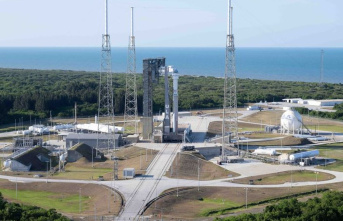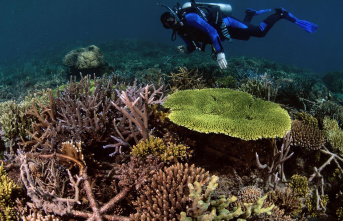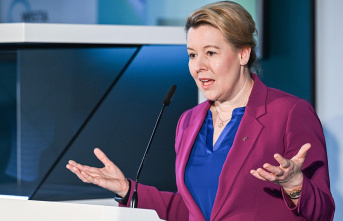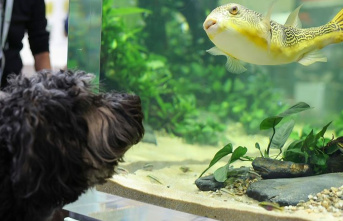The nature conservation organization WWF, together with the artist group Savespecies, wants to fight against the global pollution of water bodies by plastic waste in a virtual computer world. For the action day "World Cleanup Day" this Saturday, the exhibition room in the so-called Metaverse
The metaverse represents a form of the virtual world or virtual experience. Metaverse or metaverse is a made-up word from the two terms "meta" (Greek, means "in the middle" in this context) and "universe". It describes a virtual space that you can enter with the help of suitable hardware - such as VR glasses - and actively participate in it.
Draw attention to the plastic waste crisis
The exhibition aims to draw attention to the global plastic waste crisis and support concrete environmental protection measures. "Users can move around in the virtual parallel world created by the Savespecies artists in order to playfully explore it," explained a WWF spokesman.
At the heart of the exhibition, which can be accessed online at www.saveyour.world, is a whale made up of 50 floating plastic waste objects. These can be purchased as digital art. For example, the proceeds are intended to support the work of the WWF to combat the plastic flood in Vietnam.
Last October, the WWF used the hype surrounding virtual art and the NFT digital certificates of authenticity to draw attention to the situation of endangered animal species. At that time, the WWF sold the works of ten digital artists who deal with endangered species such as mountain gorillas or vaquita whales.
The concept of the Metaverse as a walkable Internet of the future is currently being promoted primarily by the Facebook group Meta. For months, Facebook founder Mark Zuckerberg has been promoting the idea of a 3D Internet "where you can participate in the experiences and not just watch them."
Garbage crisis worsens
With the action in the Metaverse, the WWF warns of a threatening escalation of the garbage crisis. According to the organization, up to 23 million tons of plastic waste end up in the world's waters every year. That corresponds to about two truckloads per minute.
"Even today, it is estimated that 90 percent of seabirds and half of all sea turtles ingest plastic parts." Plastic waste decomposes over the years into smaller and smaller microplastic particles, which can no longer be removed from the ocean and accumulate in the food chain.












